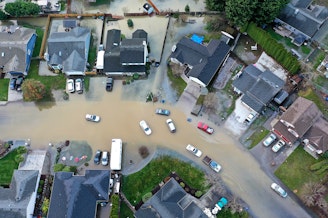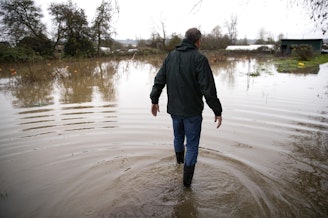Excessive heat warning remains in effect through Saturday
An excessive heat warning is in effect in the Seattle area until Saturday night. With temperatures topping 90 degrees, many people are retreating indoors to beat the heat.
But for some, like those who live or work outdoors, that's not an option.
For people like Tim Sonia, the labor foreman at a construction site in Seattle’s Green Lake neighborhood, the heat is hard to escape.
When asked Wednesday how he and his colleagues were faring during the high temperatures, he replied, “It’s terrible.”
Sonia said crews went through the same thing during last summer’s extreme heat wave and they have protocols in place to help them stay safe, like taking frequent breaks.
"Pretty much we work for about an hour, we take a 10- 15-minute break, hydrate in the shade, try again and repeat all day," he said.
Sonia said people are aware of the signs of heat stress and keep an eye on one another as they work.
Sponsored
Heat wave risks
Extreme heat can be deadly. Last year’s heat wave was the deadliest weather-related disaster in Washington state’s history with an estimated death toll of about 400.
Outdoor workers, older adults, young children and people with chronic health conditions are among those who are at higher risk for health problems in the heat, according to Public Health – Seattle & King County.
Across the region, hospitals are coordinating in anticipation of a higher patient load due to heat-related illness.
Dr. Marie Vrablik is the medical director for the emergency department at University of Washington Medical Center — Montlake .
She said hospitals are on alert to see whether things this year will be as bad as they were last year, and trying to work out how to care for heat-related patients in a system that’s already strained due to staff shortages, delayed care during the pandemic, and rising numbers of Covid-19 patients.
Sponsored
During last year’s high temperatures, Vrablik said a heavy burden fell on individual hospitals, pushing some close to the edge.
“We didn’t see that coming," she said. "And so this year as a region we are really hoping to avoid that type of distress for one hospital system, but rather to use our hospitals in the Puget Sound region to bear that strain.”
Vrablik said the coming days will likely be tough on people and she is urging everyone to have some patience.
“If you need to seek healthcare we’re happy to take care of you, but as we see our patient numbers increasing with the heat, on top of an already strained system, there may just be a little bit longer of a wait,” she said.
Vrablik and other health professionals suggest people check on neighbors and loved ones, stay hydrated, and never leave children or pets in a vehicle, even if the window is cracked.
Sponsored
Stress on the grid, and your electric bill
Of course, experts also recommend people try to stay cool. In pursuit of that goal, many people across the region are running fans and, if they have it, air conditioning in their homes.
All that cooling takes energy.
Andrew Padula is a spokesperson for Puget Sound Energy. He said last summer's extreme heat wave put more pressure on the grid. So far, this year isn’t as bad.
"Luckily for us it's only in the 90s right now. Our system is holding up well,” Padula said.
Sponsored
Padula said the system is being monitored 24 hours a day. For those who want to save a little energy, and possibly some money on their bill, Padula has a few suggestions.
“Remember that fans cool you and not the room, so when you do leave the room make sure you turn those fans off,” he said.
Windows can be opened during the cooler hours of the day to help cool a house, although health-care providers caution parents with young children to be vigilant about preventing falls.
Padula said it’s best to run appliances that create heat – like the dishwasher, washer, and dryer – during cooler hours, too.
For those lucky enough to have an air conditioner, Padula recommends setting it to kick in at 75 degrees or higher.



